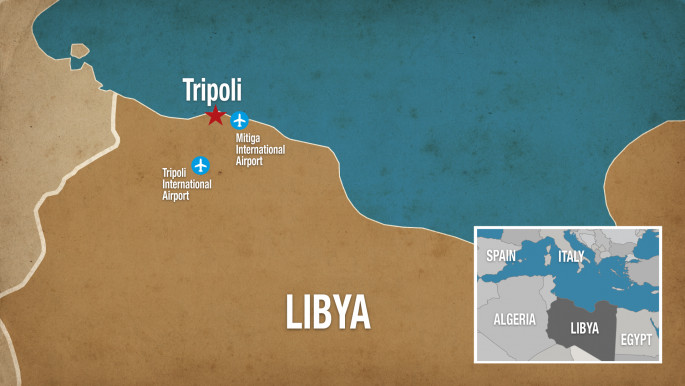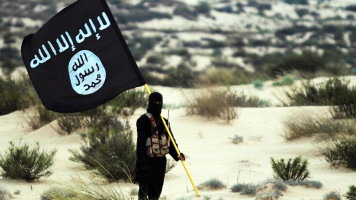Egypt 'supplying night-vision equipment' to Libyan rogue general Haftar amid bloody Tripoli offensive
The equipment includes night-vision goggles and anti-aircraft jamming systems, but due to international pressure Egypt has refused to supply 'offensive weapons', lend its western airbases to his air forces or conduct sorties in support of Haftar's forces, the sources revealed.
"The Egyptian government has offered night-vision systems as Haftar's forces have suffered setbacks during nighttime counter-attacks...and deployed jamming vessels close to Tripoli's coast to hinder air operations by the Government of National Accord," the sources told The New Arab's sister Arabic publication.
Sisi has been an ardent supporter of Haftar, whose forces control swathes of eastern Libya and launched an offensive on 4 April to take the capital where the internationally recognised Government of National Accord (GNA) is based.
Pro-government forces have held off the LNA but Haftar's fighters are just kilometers from Tripoli city centre and have the backing of Saudi Arabia and the UAE, who have bankrolled his push to capture the capital.
 |
Riyadh has pledged to pay tens of millions of dollars for Khalifa Haftar's offensive, the Wall Street Journal reported on Friday.
More than 8,000 people have fled heavy fighting on the outskirts of Tripoli that has left dozens dead and prompted mounting global alarm as Haftar's forces shell civilian neighbourhoods in the capital. The United Nations has warned the situation could spiral out of control while countries like Qatar have called for an arms emargo on Haftar's forces.
The Libyan commander Haftar has modelled his political style of authoritarian leadership after Sisi, who led a coup against the democratically elected president Mohamed Morsi in July 2013.
Egypt has provided funding and arms to his Libyan National Army, seeing him as a bulwark against Islamist militants.
Haftar, who was exiled in the United States for two decades, returned to Libya in 2011 when the revolution erupted, commanding forces that eventually toppled dictator Muammar Qaddafi.
Libya has been riven by divisions since the NATO-backed overthrow of Gadaffi, with various armed groups and two parallel governments vying for territory and oil wealth.
Follow us on Twitter: @The_NewArab







 Follow the Middle East's top stories in English at The New Arab on Google News
Follow the Middle East's top stories in English at The New Arab on Google News


